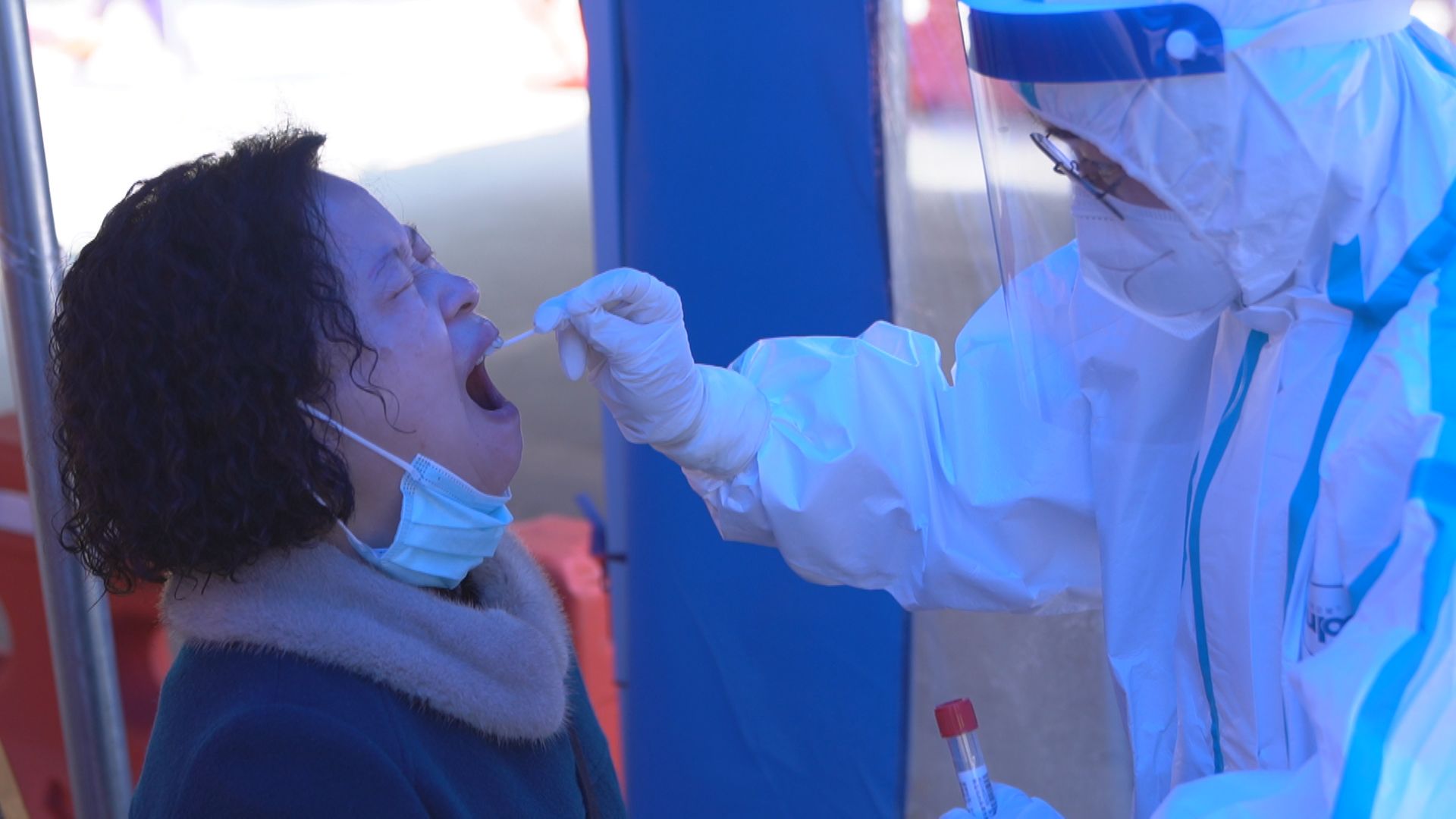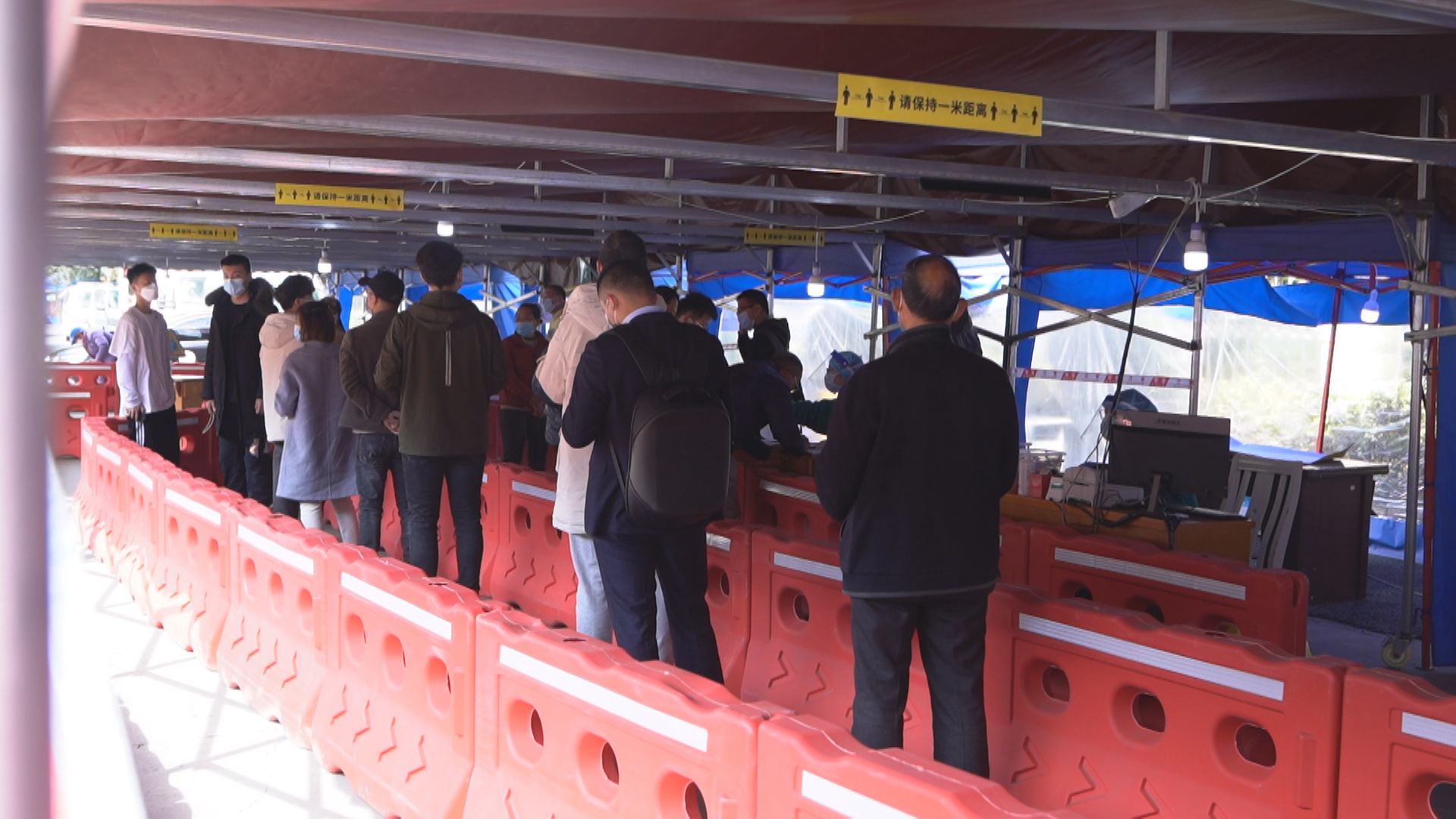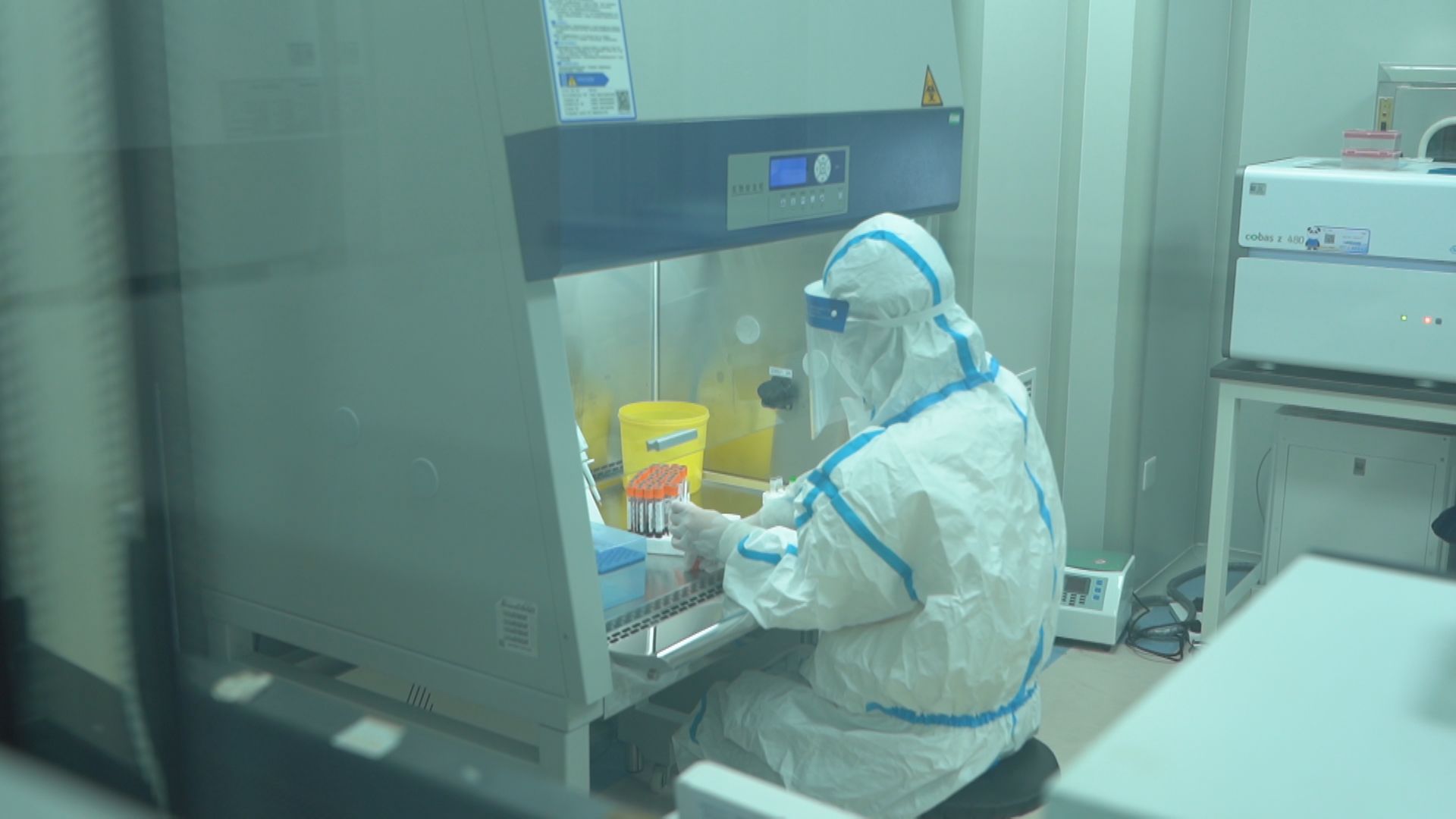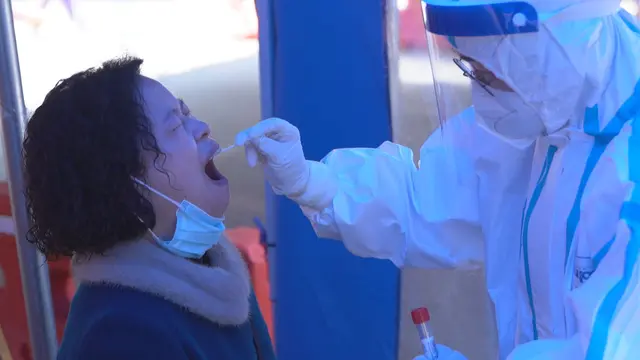
A woman receives a swab test in a hospital in Chengdu City, southwest China's Sichuan Province. Fang Zhou/CGTN
China has seen a surge of people doing nucleic acid tests as they are returning to work following the week-long holiday for the Chinese New Year, known as Spring Festival, since the country continues to be cautious of potential COVID-19 outbreaks.
The Spring Festival is usually the busiest travel season in China since most people go back home for family reunions. Data from the Ministry of Transport shows that trips made during the seven-day holiday dropped by about 77 percent compared with the same period of 2019, as authorities encouraged people not to travel during the holidays, but some 98 million trips were still recorded.
The pandemic made traveling very different this year, as many cities require a coronavirus test certificate for returnees.
Luo Yaojun in southwest China's Chengdu City got the nucleic acid test reports of his family on Thursday, a day before he left for Beijing, as the capital requires that people from low-risk areas show a negative test upon arrival. The recommendation was that people in medium and high-risk regions should not travel outside their areas.
"As citizens, we should support the country's pandemic control policy. It's also being responsible to others. So I brought my wife and my son here earlier for a test," said Luo.

People line up for a nucleic acid testing in a hospital in Chengdu City, southwest China's Sichuan Province. Fang Zhou/CGTN
As required by Beijing authorities, people like Luo will need to show two more negative tests within two weeks of returning to the city. And the capital is not the only city to issue travel restrictions.
Duan Xiaobao, a Chengdu resident, who is going back to northwest China's Xinjiang Uygur Autonomous Region for work, also has to provide a negative test made within seven days.
"We also need to go through a one-week quarantine," Duan told CGTN.
Those who plan to go abroad are also seeking the testing service. Mu Bo, an employee at a Chinese enterprise in Turkey for about eight years, came back home in October and is planning to return to work in the following days.
"We are required to provide a nucleic acid testing report when entering the customs, which has to be bilingual, but I'm not very clear about the specific standard of the document," said Mu.

A staff member of the Chengdu No.5 People's Hospital performs PCR testing, Chengdu City, southwest China's Sichuan Province. Fang Zhou/CGTN
With the country still on high alert, mass testing is expected to continue for some time, placing significant demand on medical institutions. Testing centers nationwide have continued to improve the process so that all requests can be fulfilled quickly. The Chengdu No.5 People's Hospital, for example, received some 1,000 people during peak hours, but no large crowds were seen gathering.
"People can make an appointment and pay the bill through an app, and they will finish testing within five minutes on the site," said Tang Hongmei, Vice President of the hospital.
She said that the hospital also provides a "green channel" for the elderly who are unable to use smartphones to ensure they can be tested without trouble.
"Our labs are well prepared. We have 56 staff at the laboratory, and 41 of them are qualified to do PCR testing," Tang added.
Across China, testing prices dropped considerably because the government bought in bulk. In many cities, the price for a test fell from 120 yuan ($18.56) to 80 yuan ($12.36) or even lower.
 简体中文
简体中文





